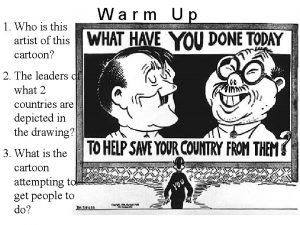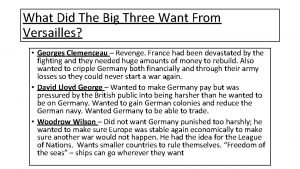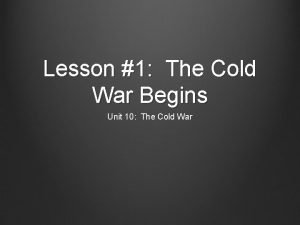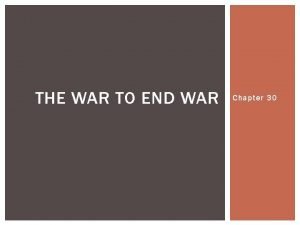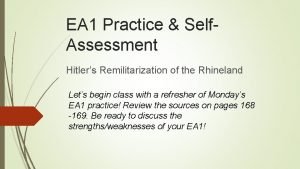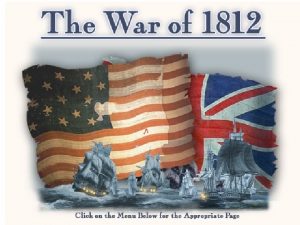The Road to War Remilitarization of the Rhineland








- Slides: 8

The Road to War

Remilitarization of the Rhineland, 1936 • Treaty of Versailles outlawed any Germany military in the Rhineland • France wanted some space between them and the Germans Great Britain Belgium Germany • In defiance of the treaty Hitler sent his army into the Rhineland Maginot Line Rhineland France

Anschluss, 1938 • “Union” – the union of Austria and Germany “Do you agree with the reunification of Austria with the German Reich that was enacted on 13 March 1938, and do you vote for the party of our leader Adolf Hitler? ”

Munich Agreement, 1938 • Meeting in Munich, Germany • Attended by leaders from Germany, Great Britain, France, and Italy Germany Sudetenland

Munich Pact / Agreement, 1938, con’t… • Agreed to give Hitler the Sudetenland (the area of German speaking citizens of Czechoslovakia) in exchange for Hitler not asking for anything else • Who wasn’t invited to the conference? “I have returned from Germany with peace for our time. ” – Neville Chamberlain, Prime Minister of Great Britain

Take Over of Czechoslovakia, 1939 • About a year following the Munich Pact Hitler marched his troops into the rest of Czechoslovakia with barely a shot fired

Nazi-Soviet Non-Aggression Pact, 1939 • Hitler and Stalin signed a deal to not fight each other • They secretly agreed to divide up Poland when Hitler invaded while Stalin invade Finland How the West viewed the pact

Policy of Appeasement • A diplomatic policy whereby leaders make political and material concessions to avoid conflict (i. e. , give Hitler what he wants so we don’t have to go to war) • The change in the meaning of "appeasement" after Munich was summarised later by the historian David Dilks: • "The word in its normal meaning connotes the pacific settlement of disputes; in the meaning usually applied to the period of Neville Chamberlain premiership, it has come to indicate something sinister, the granting from fear or cowardice of unwarranted concessions in order to buy temporary peace at someone else's expense. “ (Wikipedia)



